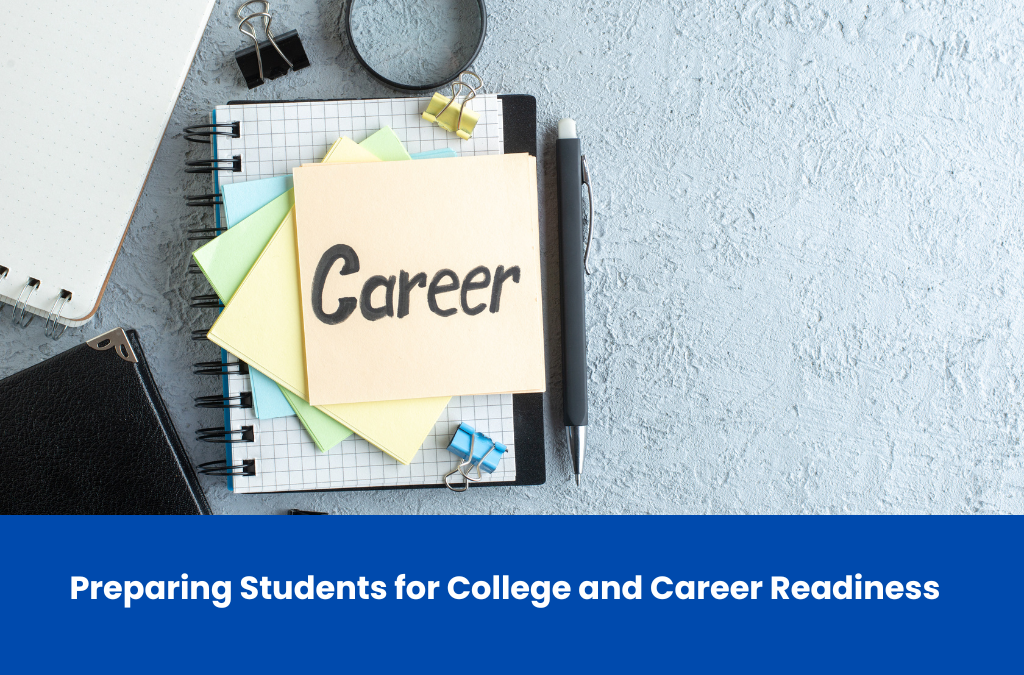In today’s rapidly evolving world, the landscape of education and employment is continuously changing. As a result, the preparation of students for college and career readiness has become an essential goal for educators worldwide. We at BTS Jaipur, one ot the top school in Jaipur believes that the transition from secondary education to higher education or the workforce requires more than just academic knowledge; it demands a diverse set of skills and competencies. Therefore, it is imperative for educators to equip students with the necessary tools to thrive in both academic and professional spheres.
Understanding College and Career Readiness
College and career readiness encompass a broad spectrum of skills, knowledge, and attributes that empower individuals to succeed in post-secondary education and various career paths. While academic proficiency forms a foundational component, it alone does not guarantee success. Students need to develop critical thinking, problem-solving, communication, collaboration, and adaptability skills to navigate the complexities of modern society.
Cultivating Essential Skills
1. Critical Thinking and Problem-Solving:
Encourage students to analyze information critically, evaluate different perspectives, and devise effective solutions to real-world problems. Incorporating activities such as case studies, debates, and project-based learning fosters these skills.
2. Communication and Collaboration:
Effective communication is crucial in both academic and professional environments. Encourage students to articulate their ideas clearly, listen actively, and collaborate with peers to achieve common goals. Group projects, presentations, and discussions can enhance these abilities.
3. Adaptability and Resilience:
In a rapidly changing world, adaptability is key to success. Encourage students to embrace change, learn from failures, and adapt their strategies accordingly. Providing opportunities for students to navigate unfamiliar situations and overcome challenges builds resilience.
4. Digital Literacy:
In today’s digital age, proficiency with technology is essential. Educators should integrate technology into the curriculum and teach students how to use digital tools effectively and responsibly. This includes skills such as information literacy, online research, and digital citizenship.
5. Career Exploration:
Help students explore their interests, strengths, and career aspirations through career assessments, internships, job shadowing, and guest speakers. Providing exposure to various career pathways empowers students to make informed decisions about their future.
Strategies for Implementation
1. Integrated Curriculum:
Design interdisciplinary curriculum that incorporates academic content with real-world applications. This approach helps students understand the relevance of their learning and develop transferable skills across different subjects.
2. Experiential Learning:
Promote experiential learning opportunities such as internships, service-learning projects, and apprenticeships. These hands-on experiences allow students to apply classroom knowledge in real-world settings and gain valuable skills and insights.
3. Personalized Learning:
Recognize that each student has unique strengths, interests, and learning styles. Implement personalized learning approaches that cater to individual needs and foster student engagement and motivation.
4. Professional Development:
Provide ongoing professional development opportunities for educators to stay updated on best practices in college and career readiness. Collaboration with industry professionals and participation in workshops and conferences can enhance educators’ knowledge and skills in this area.
Conclusion
Preparing students for college and career readiness is a multifaceted endeavor that requires a holistic approach. We at Banyan Tree School, one of the best school in Jaipur, by nurturing essential skills, providing diverse learning experiences, and fostering a culture of continuous learning and adaptability, empower students to thrive in an ever-changing world. Together, educators, students, parents, and the community can work towards creating a future where every individual is equipped to achieve their academic and professional aspirations.

